Information/Write-up
Sealand of the Pacific: The Haida & Paul Horn Experiment
In 1972, an extraordinary experiment in inter-species communication took place at Sealand of the Pacific, an aquarium in Victoria, British Columbia. It was here that Haida, a young male killer whale, and legendary jazz flutist Paul Horn forged an unlikely yet deeply moving musical connection. The result was a groundbreaking recording, blending the haunting calls of Haida with the meditative tones of Horn’s flute, creating an unparalleled fusion of nature and music.
The Story of Haida
Haida was captured in Yukon Harbor, Washington, on October 5, 1968, at around four years old. Along with several other orcas, he was briefly housed at the Seattle Marine Aquarium before being transferred to Sealand of the Pacific in April 1969. As the first killer whale kept at Sealand, Haida quickly became the main attraction, drawing thousands of visitors with his intelligence, playfulness, and curiosity.
He was known for his interactive personality, often squirting water at trainers and guests, and he displayed a remarkable response to music. It was this unique sensitivity to sound that led to his collaboration with Paul Horn.
Paul Horn & Haida: A Musical Connection
By 1972, Sealand had begun conducting sound and communication experiments with Haida. As part of these studies, Paul Horn, an acclaimed jazz flutist known for his explorations in ambient and world music, was invited to perform for Haida.
The connection between Horn and Haida was immediate. As Horn played his flute, Haida responded with his own vocalizations, creating an organic, spontaneous duet between man and whale. Their sessions often continued after hours, in what could only be described as a deep, intuitive exchange beyond language.
This collaboration resulted in an extended-play recording, allowing listeners to experience the hauntingly beautiful sounds of Haida and Horn’s improvisational dialogue. The release was a testament to the power of music as a universal language, transcending species and forging an emotional bridge between human and animal.
The Later Years & Haida’s Legacy
Despite Sealand’s efforts to provide companionship for Haida; introducing several female orcas over the years; he never sired any calves. His closest bond was with Chimo, a rare white orca, but she passed away in 1972, the same year as his collaboration with Paul Horn. Witnessing her necropsy deeply affected him, and in the following years, he experienced periods of depression and illness.
In 1982, plans were made to release Haida back into the wild in exchange for permits to capture new whales. However, the debate surrounding this decision was contentious, and ultimately, the permit expired before the release could take place.
On October 3, 1982, Haida passed away from a lung infection, just days before his scheduled release.
A Unique Moment in Music & Conservation History
The Haida & Paul Horn recording remains a landmark experiment in interspecies communication, capturing a rare moment of musical and emotional connection between human and orca. Haida’s story is both a fascinating exploration of whale intelligence and communication and a poignant reflection on the ethical questions surrounding marine captivity.
Though Haida is gone, his voice lives on in this remarkable recording, a lasting reminder of the deep, mysterious bonds that can exist between species.
-Robert Williston
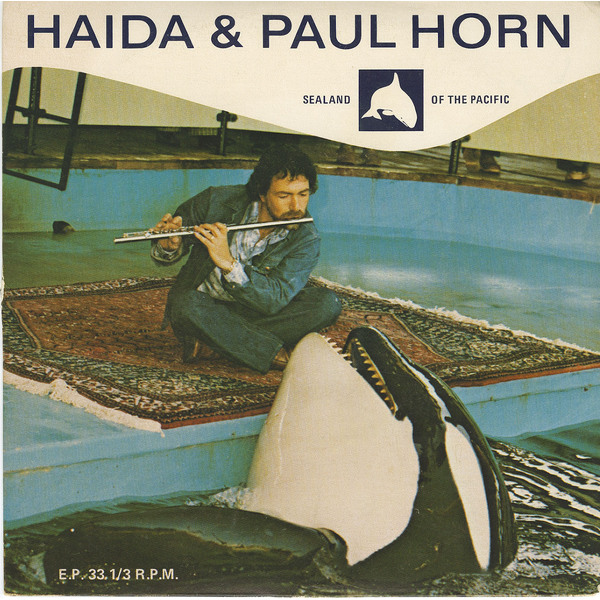
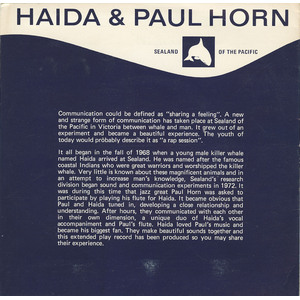
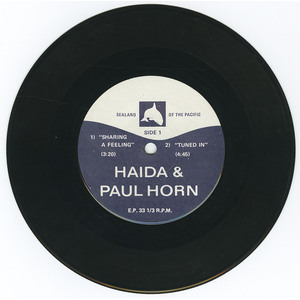
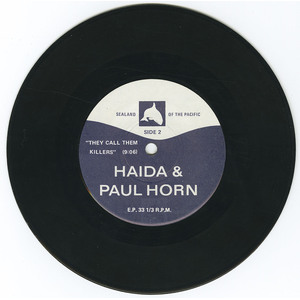
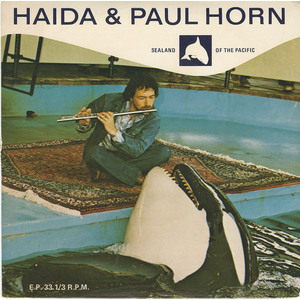
No Comments